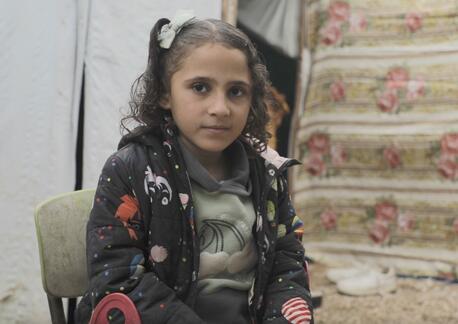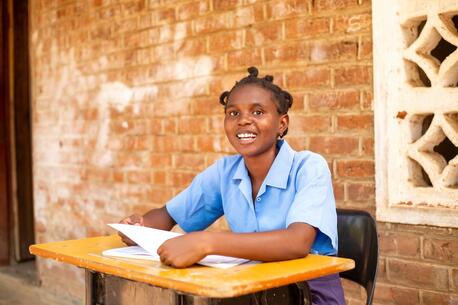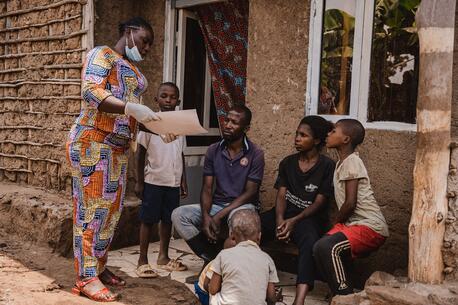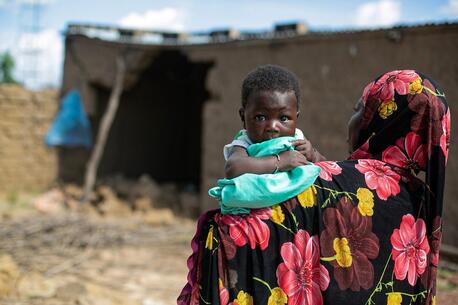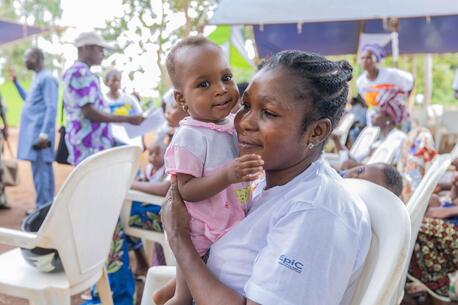
UNICEF in Benin
UNICEF is helping the government of Benin respond to urgent and long-term needs of children, including an increasing number of child refugees in the northern areas bordering on the Sahel, working to safeguard children’s rights to education, health and protection. Learn more, including how to help.
Crisis in central Sahel impacting children and families in Benin
Benin has seen robust economic growth and has made important development gains in recent years, reducing maternal mortality, narrowing the gender gap in education, and strengthening measures to protect the rights of children. All of this bodes well for the small West African nation, where more than half of the population of 12.6 million is younger than 18.
But Benin continues to face challenges that jeopardize its future progress. Hostilities in central Sahel have been spilling into Benin's northern border regions, placing up to 16 percent of the population at risk. There were more than 155 security incidents between January 2021 and December 2023, including kidnappings, attacks and threats against schools and detonations of improvised explosive devices.
The violence has hit remote communities — places with scarce infrastructure and resources, and where children already have extremely limited access to essential services and protection — shutting down schools and displacing tens of thousands, mainly children and women.
UNICEF has been reinforcing its presence in the border areas to respond to emerging needs affecting children, including refugees, and working with the government and other partners to safeguard children’s rights to education, health and protection.
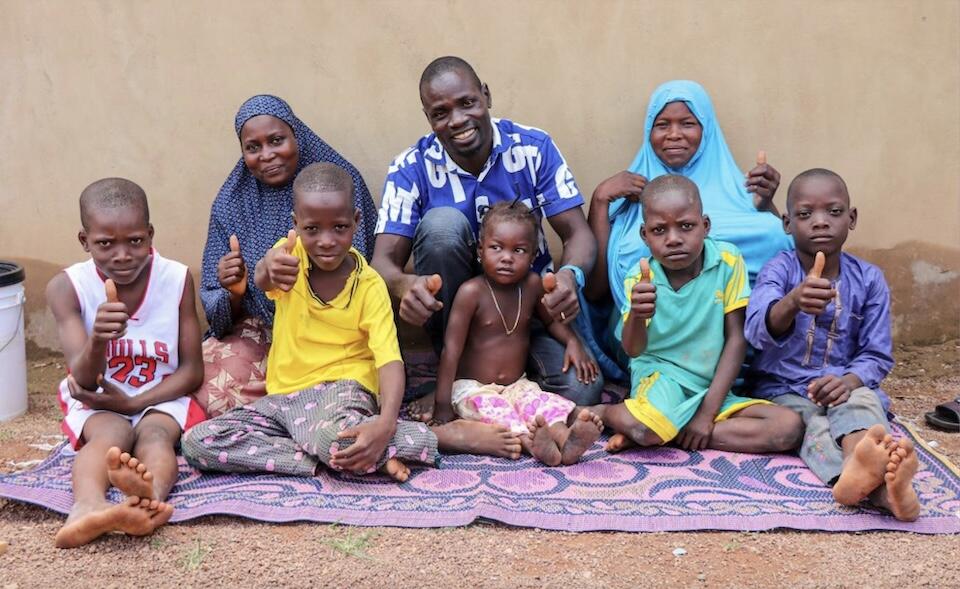
UNICEF has also been supporting the government as it implements programs aimed at strengthening resilience and social cohesion and emergency response capabilities in risk areas.
In March 2024, UNICEF, alongside UNHCR (the UN's lead refugee agency) and other UN agencies, launched a joint humanitarian response plan for the northern regions of Benin, Côte d’Ivoire, Ghana and Togo — all coastal countries on the Gulf of Guinea feeling the effects of the Sahel crisis — to coordinate efforts and ensure alignment with development goals.
How UNICEF is helping children in Benin
About 36 percent of Benin's population continues in live in poverty. While the rates of maternal and infant mortality continue to fall, and rates of exclusive breastfeeding rise, one-third of children are chronically malnourished.
UNICEF supplies Ready-to-Use Therapeutic Food (RUTF), a nutrient-rich, peanut-based paste used to effectively treat acutely malnourished children, while also supporting strategies for preventing malnutrition in the first place.
In September 2023 Benin hosted a First Foods Forum in Cotonou to kick off a massive regional effort to promote equitable access to rich, balanced and diversified diets for children across West and Central Africa. Organized by UNICEF in close collaboration with the government and involving a range of public and private sector partners, the forum was part of UNICEF's First Foods initiative, an innovative bid to transform food systems to sustainably combat child malnutrition in all forms. Learn more.
Benin also grapples with poor access to safe drinking water in some areas of the country. UNICEF helps local authorities improve access for those need, efforts that have made steady progress. With UNICEF's help, Benin has seen the percentage of the population with sufficient access to safe water increase from 68 percent in 2018 to over 77 percent in 2022.
Meeting health care needs
UNICEF supports government efforts to vaccinate children, helping to organize “catch-up” immunization campaigns focusing on remote municipalities where children are particularly hard to reach.
When three cases of circulating vaccine-derived poliovirus were reported in 2023, UNICEF and partners helped local health workers close immunity gaps and continue to support the final stretch toward eradication.
In January 2024, Benin received its first shipment of malaria vaccine doses — purchased by UNICEF with support from Gavi, the vaccine alliance — and with UNICEF's help, launched a new national campaign to immunize children against the often deadly mosquito-borne disease.
UNICEF has also helped Benin implement a new community health policy aiming towards universal health coverage, supporting the training and deployment of health workers and a range of promotional and preventive activities involving hundreds of thousands of households.
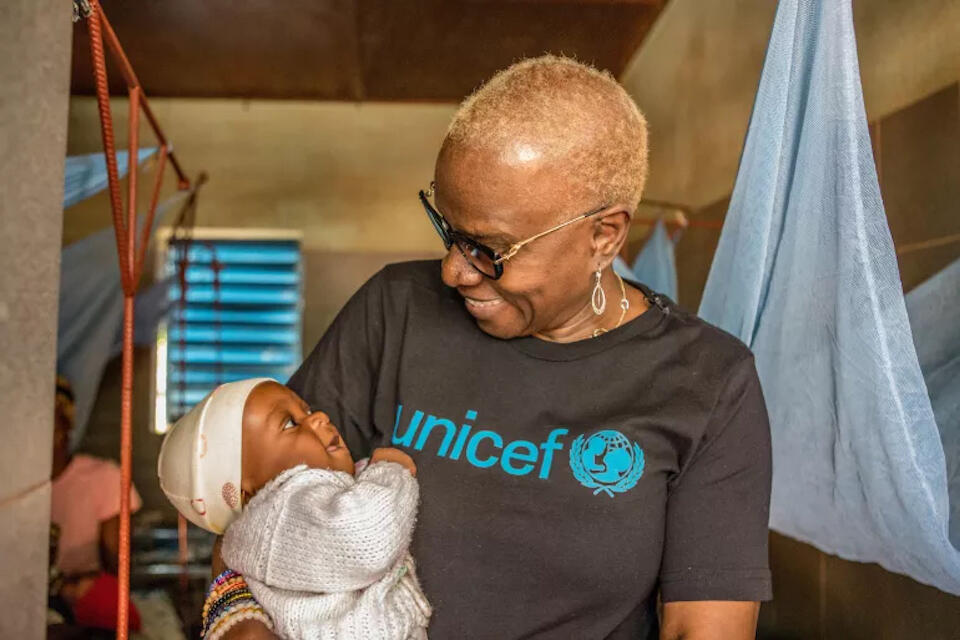
Strengthening child protection
Nine out of 10 children in Benin continued to be victims of some form of violence. To combat this trend, UNICEF is training more child protection workers, and supporting programming focused on improving the leadership and well-being of adolescent girls, by partnering with local women's organizations.
Efforts aim to promote community engagement on girls' rights and the fight against violence based on gender, to support menstrual hygiene management and to prevent child marriage.
In Benin, 3 in 10 girls are married before the age of 18. UNICEF supports programs for those who have escaped child marriage, helping them reintegrate back into their communities through vocational training opportunities and income-generating activities such as sewing, cooking, welding and masonry.
Supporting children's education
Though school attendance rates have been improving in Benin, close to one-third of secondary school-age students in Benin are out of school. UNICEF supports government efforts to increase enrollment while also working to close gender gaps, focusing on accelerating girls’ education.
One UNICEF-supported program provides cash transfers to families to help cover school expenses, and help keep girls in school.
Other UNICEF efforts to support children's education in Benin include introducing digital technology in schools and helping to reduce the digital divide between urban and rural areas.
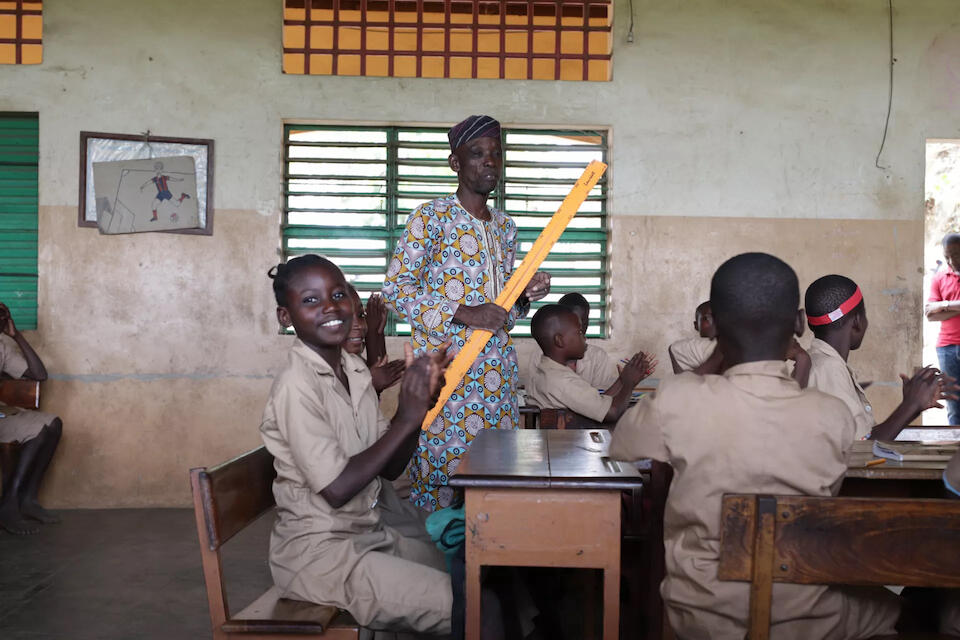
Benin 1 of 25 countries in the world where children most affected by climate change
Benin is one of the 25 countries in the world where children are most affected by the effects of climate change. Temperatures in the Sahel are rising 1.5 times faster than the global average. Rainfall is more erratic and intense, causing floods that reduce crop yields and contaminate scarce water supplies.
UNICEF is supporting the government as it implements a national plan, adopted in 2022, which aims to integrate climate adaptation into local development planning.
UNICEF has also initiated consultations with children, adolescents and young people across the nation to collect their perspectives and proposals on the impact of climate change on children's rights.
The active engagement of adolescents and young people in the advocacy and their participation in international decision-making bodies, notably at COP28, helped spur a government declaration on climate action and the development of a climate landscape analysis report for children in Benin.
UNICEF works in over 190 countries and territories to create a more equitable world where children are healthy, educated, protected and respected. Learn more about what UNICEF does and how to support UNICEF's global mission by becoming a monthly donor.
